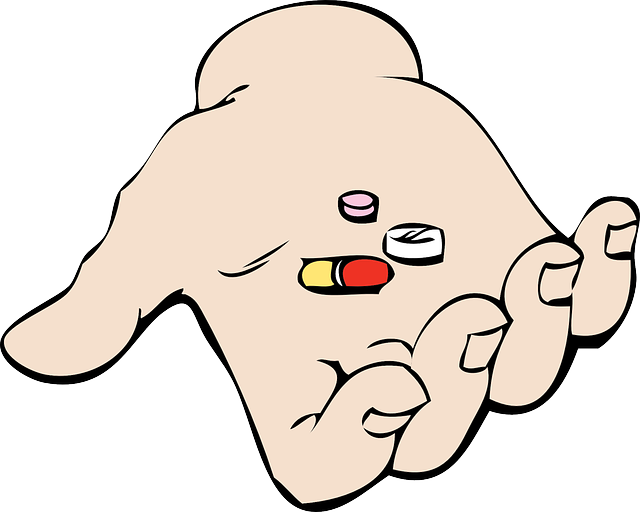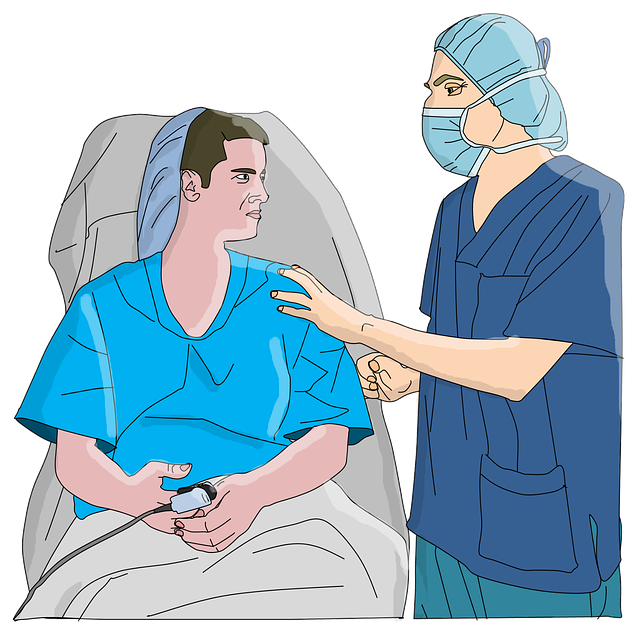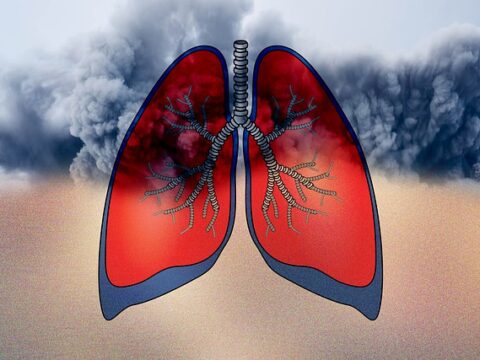This article is only for health education, reference, and study, and should not be used for self-diagnosis, and cannot replace medical examination, treatment, prescription, or other medical advice.
Taking ibuprofen must be planned according to individual physical factors and should not be taken randomly. Many people have to go to the hospital for emergency surgery because of gastrointestinal perforation caused by taking ibuprofen, so they must take it according to the doctor’s instructions.
In 2022, due to the global epidemic, there will be more and more people with fever and high fever, so many people will go to loot ibuprofen. Even pharmacies will not be able to buy drugs and will sell out of stock. Now, after media reports, people may be afraid and misunderstand. As long as we use drugs under the guidance of doctors, and as long as we carefully read the instructions before using drugs, we can minimize the risk of drugs.

How does ibuprofen affect our body? Why does it hurt our bodies so much if we don’t use it properly? What should we pay attention to? The following contents are expected to provide some reference suggestions for friends who use ibuprofen,
Ibuprofen is classified as a non-steroidal anti-inflammatory drug, which is a very common over-the-counter drug. It can treat pain, inflammation and fever, and even dysmenorrhea in women.
In most cases, we take ibuprofen orally and absorb it into the blood through the digestive tract to play a role. The most commonly used one for adults is ibuprofen sustained-release capsules, and the most commonly used one for children is ibuprofen suspension. When it plays its drug role, it may also bring some negative reactions, which is a problem with all drugs, so you can understand this when you read the instructions.

Why is ibuprofen effective in treating inflammation, pain, and fever? This is because ibuprofen can inhibit the effect of cyclooxygenase COX1/COX2, which are the enzymes responsible for the formation of prostaglandins in the human body. Prostaglandins are extremely important for human beings because they participate in many important physiological processes of the human body. One of them is inflammation. The other is that prostaglandins are related to pain. They can stimulate some pain receptors in the human body. Therefore, if our body is infected or our tissues are injured, we will find a large number of prostaglandins in these areas, Prostaglandins can also affect the core structure of our brain, that is, the hypothalamus, which can affect our temperature and even the response to fever. Prostaglandins can also affect our stomach, which can help the mucus produced by the gastric mucosa to produce bicarbonate, thus protecting the stomach from the erosion of gastric acid. Prostaglandins can also help us regulate gastric acid and reduce the secretion of gastric acid. For women, Prostaglandins can also affect the contraction of the uterus and participate in the menstrual process of women. For the kidney, prostaglandins can also cause the dilation of small arteries that enter the kidney, which can protect our kidneys from sufficient blood flow. These are just some of the physiological functions that prostaglandins play in the human body
When we take ibuprofen, we control epoxide and enzymes, and we control the level of prostaglandins produced by the human body. It is beneficial to control inflammation, relieve pain and fever, and relieve women’s pain during menstruation, which can reduce the impact of disease factors on our bodies.

However, prostaglandins are also needed for the normal physiological functions of many parts of our body. This is the source of the side effects of ibuprofen. First of all, let’s talk about the impact of ibuprofen on the stomach. The stomach is one of the digestive organs of the human body. Its biggest function is to produce gastric acid, help the human body digest proteins and kill microorganisms entering the human body. The acidity of normal gastric acid can be close to the level of hydrochloric acid, You can imagine how strong the acidity is. When we digest food, our stomach is a bag full of hydrochloric acid, so the human body should avoid being digested by gastric acid while digesting food. This layer of gastric mucosa can produce mucus, and bicarbonate, which is an alkaline liquid. Our stomach uses these two substances as a buffer zone between gastric acid and stomach A barrier to protect the stomach, which means that the mucous layer and bicarbonate of the stomach are very important,
Prostaglandins can help the stomach produce mucus and bicarbonate, and reduce gastric acid. When I take ibuprofen, it reduces prostaglandins in the body. Although it alleviates pain, we also reduce the amount of mucus and bicarbonate in the stomach. We weaken the protective barrier of the stomach. At this time, gastric acid may start to corrode the stomach, This is the main reason why ibuprofen affects or stimulates the stomach. To some extent, ibuprofen can cause gastric ulcers or gastric bleeding. For most of us, the dosage of ibuprofen is strictly controlled, within the safe measurement range. It can not only control inflammation and pain but also not cause obvious stomach problems. In most cases, we only use ibuprofen for a short time, but some people are too sensitive or have certain stomach problems. This is common for people who often drink, stay up late, work and rest irregularly, eat high-carbon water, or have a history of arthritis, They need to take drugs like ibuprofen for a long time to control pain, so such people are more likely to have stomach bleeding and gastric ulcer problems.

It is very normal to worry that ibuprofen will damage the liver. The liver is the largest transit station for the human body. Nutrients in food and most drugs will be metabolized through the liver. For ibuprofen, the liver will decompose most of the substances entering the human body and excrete them through urine. The proportion of the effects of ibuprofen on the liver is actually very small.
Only 1 to 10 people in every 100000 people will suffer from liver damage due to NSAIDs. Ibuprofen may lead to changes in liver function tests, but this usually happens only when people take high doses. If a person stops taking Ibuprofen, these blood tests should gradually return to normal, so for most normal people, The risk ratio of liver damage is actually very low, but for those friends who have liver problems, you need to be careful. If you are taking other drugs that may cause liver damage at the same time, the risk will definitely be superimposed.
As far as the kidney is concerned, I think we need to pay more attention to it. Compared with the liver, ibuprofen will have a greater impact on the kidney. In the human body, the kidney is used to filter blood. The blood vessels connect to the kidney and then become many small blood vessels. They call it the glomerulus. It is such a small structure, which plays a filtering role. However, with this small structure, We cannot observe with the naked eye. It is like a very precise sieve. It turns too much water, too many nutrients, and the metabolic waste generated in our bodies into the urine and then discharges it down through the urine tube. This means that a lot of blood will flow through the kidney every day. Adequate blood flow can ensure the formation of adequate urine and can ensure adequate kidney nutrition supply, Such a process produces prostaglandins 24 hours a day, which plays an important role in regulating renal blood vessels. It can ensure the supply of renal blood flow. But when we take ibuprofen, prostaglandins are inhibited. When the renal blood vessels need to expand, if there are not enough prostaglandins, the renal blood supply will not be sufficient, so it will become a problem, Similarly, if you are a healthy person and do not use ibuprofen for a short time, this will not be a big problem. However, some friends take ibuprofen for a long time due to joint pain, and waist and back pain, which requires attention. You need to monitor your functions frequently. If you still have high blood pressure and high blood sugar. If you still smoke for a long time, these factors themselves will cause damage to the kidney blood vessels, which will affect the function of the kidney. Taking ibuprofen at this time may make you worse.

For those who take hypertension drugs, I would like to emphasize that if you are taking diuretics, renin-angiotensin, and system inhibitors at the same time, you must be extra careful when taking ibuprofen, because it will obviously increase the risk of kidney damage, so in this case, you need to consult with your doctor to adjust the medication plan, so as to avoid unnecessary trouble,
In addition, if you belong to the allergic population, if you have nasal polyp allergic rhinitis, if you have asthma, or if you are using ibuprofen for the first time, you need to pay attention to starting from a small dose and observe while using it, because it may aggravate your original disease, and for healthy people, we also need to pay attention to that when we use ibuprofen for analgesia, we should not use it continuously for more than five days, When we use ibuprofen to reduce fever, we should not use it continuously for more than three days. During the medication, we should never drink alcohol or drink coffee. We should strictly follow the instructions and never give large doses of adult ibuprofen to children. Only by doing so, can we really avoid or reduce the harm caused by the drug to the body,

This article is only for health education, reference, and study, and should not be used for self-diagnosis, and cannot replace medical examination, treatment, prescription, or other medical advice.












